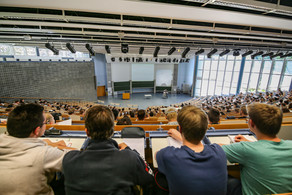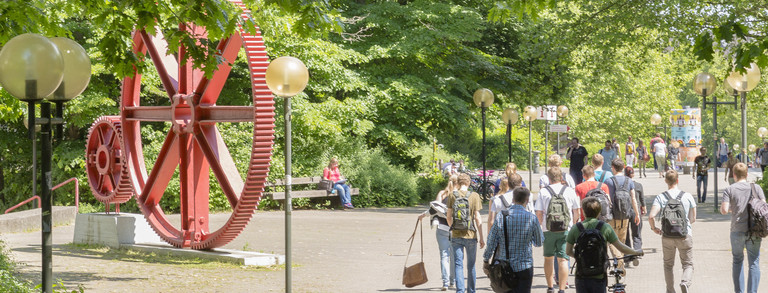Cooperation, Consulting & Transfer
Action Plan Inclusion of the City of Sankt Augustin is being evaluated in order to update it for a second development phase. The "Act on the Equality of Disabled Persons" (BGG; 2002) and the "General Equal Treatment Act" (AGG; 2006) concretize the prohibition of discrimination defined in the Basic Law (Article 3 (3)). In the sense of a modern policy for people with disabilities, the orientation towards the right to self-determination and equal participation in the Federal Republic of Germany is also expressed in social legislation (including Social Codes Nine and Twelve [SGB] IX and XII). At the municipal level, as part of the executive branch, action plans for its implementation or local participation plans have been presented in recent years - in accordance with the obligation by signing the UN Convention on the Rights of Persons with Disabilities. The action plan of the city of Sankt Augustin was put into force in 2014 as a steering tool for municipal inclusion processes and has now been evaluated for the first time. For this purpose, the EEIB department (Dr. Michael Schurig) accompanies the process with a system evaluation that brings together the perspectives of all stakeholders in a multi-method and triangulative approach.
Head: Dr. Michael Schurig, TU Dortmund University
Duration: 30.9.2020 - 30.9.2021
Funding: Municipality of Sankt Augustin/Rhein Sieg-Kreis/State of NRW (third-party funds)
Starting in 2019, under the guidance of Dr. Nadine Elstrodt-Wefing, Jun.-Prof. Dr. Anna-Lena Scherger and Jannika Böse, the Department of Language & Communication at the Technical University of Dortmund has been providing weekly language support in three small groups at the St.-Antonius-Kita Haus der Generationen in the north of Dortmund. The language support is carried out by employees of the department in cooperation with students of the teaching profession with a focus on language. The planning of the support units is initially carried out by the students as part of a seminar. In order to enable the students to reflect on their own language support behavior in addition to the written support planning, each support unit is also videotaped. Subsequently, individual video coaching can be carried out with each student in this way, in which their language support competencies are reflected on using "best & worst practice" examples. This creates synergy effects in which the children benefit from the support provided by qualified professionals on the one hand, and the students have the opportunity to gain supervised practical experience on the other.
Contact: Dr. Nadine Elstrodt-Wefing, TU Dortmund University.
Duration: Ongoing since 2019
Funding: Katholische Kindertageseinrichtungen Östliches Ruhrgebiet gGmbH





